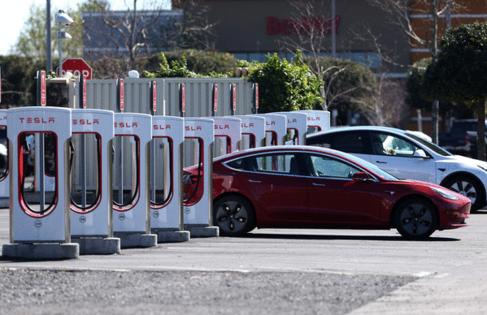New data uncover another hidden cost of EV ownership: high insurance premiums
Published in Automotive News
As the price of buying an electric vehicle is set to soar with tariffs and the end of government incentives, drivers who want to go green have another hidden cost to consider before making the switch.
The insurance premiums on electric vehicles are, on average, a whopping 49% higher than those for gas-powered cars, according to new data from the digital insurance platform Insurify.
It costs an average of $4,058 annually to insure an electric vehicle, compared with $2,732 for a traditional vehicle, according to the data. Electric cars cost more to replace, are more expensive to repair, and are more likely to have issues that lead to insurance claims, the report said.
The steep insurance prices for EVs come as the U.S. electric-vehicle industry is being battered by auto tariffs, federal legislation and the expiration of a tax incentive attached to new and used electric vehicles.
"Insurance costs, because they are ongoing, do matter in the long-term calculation of whether it costs more or less for any given person to drive an EV versus a gas-powered car," said Julia Taliesin, who authored the report.
Battery-powered cars cost more to insure because they have higher sticker prices, are more easily damaged and require specific parts for repairs, Taliesin said. A fender bender that would be a simple fix on a traditional vehicle could require an expensive and lengthy repair on an EV to mend the battery and recalibrate the car and its sensors.
"The cost of what's making up the car, and the cost of the labor to make those repairs, all go into why EVs are more expensive to insure," she said.
Insurance prices are even higher in states where there are fewer EVs and fewer mechanics who can work on them, the report said. In Arkansas and Idaho, where there is low EV adoption rates, the cost of full coverage for an electric vehicle can be almost twice that of a traditional car.
In California, it costs 15% to 31% more to insure an electric vehicle than it would to insure a traditional car, according to Insurify. Widespread EV adoption in the state drives prices down and gives insurers more data, allowing them to offer lower premiums, Taliesin said.
"California has been very intentional about infrastructure and incentivizing EV ownership," Taliesin said. "It leads the nation in EV adoption, and that has a bit of a waterfall effect on a few other things that relate to insurance costs."
As federal EV incentives dwindle under the Trump administration, state-level programs become increasingly important tools in encouraging EV adoption, experts said. The California Air Resources Board mandates that all new cars sold in the state by 2035 be zero-emission, an ambitious goal that faces challenges in Washington.
Transitioning more completely to electric vehicles is vital in the fight against human-caused climate change, experts say. However, recent polling data from Gallup show that fewer Americans are open to buying an EV than they were two years ago. As of April, 51% of those surveyed said they already owned or were considering buying an EV, down from 59% in 2023.
It's easier to insure an EV now than it was a decade ago, said Mallory Mooney, director of sales and service at Insurify.
"When we first started seeing EVs, we had a hard time placing Teslas for coverage and other specific models that we've seen are troublesome for repair," she said.
The Tesla Model X and Model 3 top Insurify's list of most expensive EVs to insure.
The Model X has an average annual cost of $4,765 for full coverage, a sharp 36% jump since last year. The data also show that the Model 3 has a claims frequency rate that is significantly higher than the industry average, indicating it may require more frequent repairs.
Most standard insurance carriers offer policies for EVs, but there are exceptions, even in California, Mooney said. Specialized carriers, including Aspire, Bristol West and National General, which offer policies to high-risk drivers, typically don't cover electric vehicles.
Though EVs tend to cost more to repair, they usually cost less to maintain under normal conditions, said Taliesin. Savings on maintenance and gas could help offset ongoing insurance fees and high up-front price tags on EVs.
"Electric vehicles are more technical and finicky," she said. "The more there are on the road, the more affordable they should become."
©2025 Los Angeles Times. Visit at latimes.com. Distributed by Tribune Content Agency, LLC.








Comments